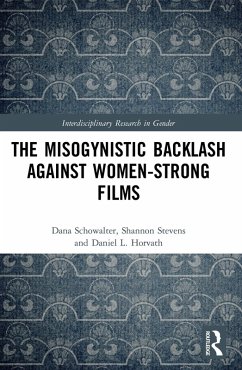This book is an exploration of the political struggle for visibility engendered by the growing number of women-centered popular films and a critical analysis of the intensifying misogynistic backlash that have accompanied such advances in the depiction of women on screen.
Dieser Download kann aus rechtlichen Gründen nur mit Rechnungsadresse in A, B, BG, CY, CZ, D, DK, EW, E, FIN, F, GR, HR, H, IRL, I, LT, L, LR, M, NL, PL, P, R, S, SLO, SK ausgeliefert werden.


